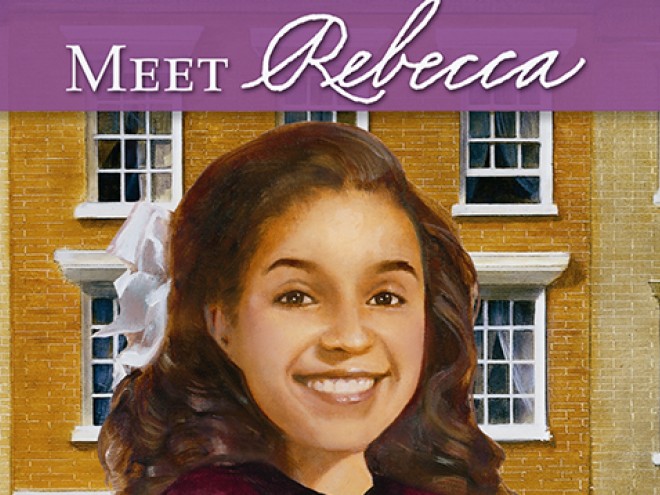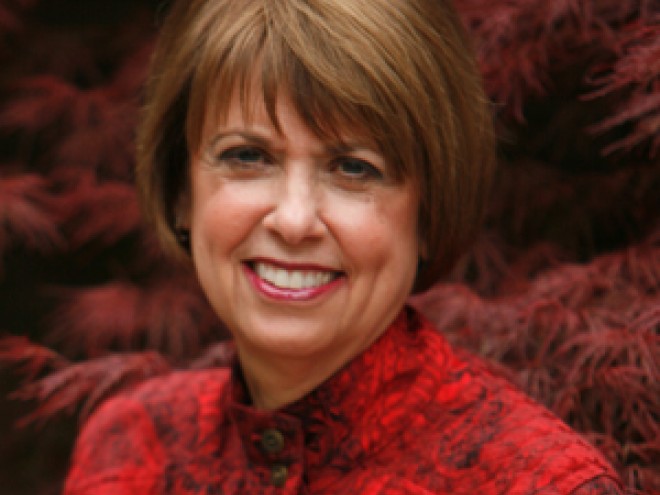In honor of the 65th National Jewish Book Awards, Jewish Book Council asked some of this year’s winners to share their top rules for writing an award-winning book. Richard Simon, recipient of the 2015 award for Children’s Literature — together with his wife and co-author, Tanya — for Oskar and the Eight Blessings, decided to go in a different direction entirely.
In the summer of 1969 I was ten years old. The Mets were having their best season ever, and Armstrong and Aldrin took their first steps on the moon, paving the way for me to fulfill my destiny as World’s Youngest Boy Astronaut. I thought a lot about space travel and escape — specifically out of Levittown, Long Island, the predominantly Catholic working class town where I grew up and learned first-hand how anti-Semitism felt.
The week of the moon landing was also the one time a conversation with my grandfather went beyond “How’s school?” or “Quiet, I have to hear this race.”
In the summer of 1969 I was ten years old. The Mets were having their best season ever, and Armstrong and Aldrin took their first steps on the moon, paving the way for me to fulfill my destiny as World’s Youngest Boy Astronaut. I thought a lot about space travel and escape — specifically out of Levittown, Long Island, the predominantly Catholic working class town where I grew up and learned first-hand how anti-Semitism felt.
The week of the moon landing was also the one time a conversation with my grandfather went beyond “How’s school?” or “Quiet, I have to hear this race.”
“When your father was ten, we had some unexpected visitors.” He motioned for me to sit. “Three rabbis from the old country, from the city my father came from. Black coats, black suits, black hats, black beards down to here, the works. All they spoke was Yiddish, not a word of English. I understood them okay, but I don’t speak Yiddish, so Grandma had to translate for me. I couldn’t figure out how the hell they even got to New York, forget about how they tracked me down to Avenue K.”
“Why did they have to track you down?” I suspected gambling debts, but thought better of saying so.
He rubbed his forehead and winced more than smiled. “It was crazy. They said my grandfather, their big rabbi, had died, and they had to find his successor.” He shook his head. “I said, ‘You’re telling me you don’t got enough rabbis over there to do the job?’ They said, ‘We got plenty rabbis, but nobody in the lineage.’ Turns out the big rabbi had to be the eldest son of the eldest son of the eldest son, going back God knows how long.”
He went on. “I told them they couldn’t have found anyone more wrong for the job. I barely had a bar mitzvah, and I hadn’t been in a shul since. I don’t know Hebrew. I can’t speak Yiddish. I’m the exact opposite of a rabbi. Do I have to eat a ham and cheese sandwich on Pesach to prove it?”
This made me laugh.
“You should try it, it’s good. Especially with a milkshake.” He winked. “Anyway, they’re not buying. ‘Don’t worry,’ they say. ‘We’ll teach you everything,’ they say: ‘Hebrew, Yiddish, Torah, Talmud— you’ll learn it all, because you have the blood. And our city will be saved because we will once again have a leader who will guide us through these dark times.’”
He stared into his sweating drink and took a slow sip. “I told them, ‘No.’”
I leaned forward, “What happened when they got back?”
My grandfather blinked and looked at me. “What do you mean?”
“Without a new big rabbi — did they get in trouble?”
My grandfather could be brokenhearted about a losing horse for five minutes, but he was never on his worst day anything close to sentimental. At that moment, though, he took my hands in his giant calloused ones. “Richie, that was just a couple of years before the war. They were all killed.”
Decades later, I had a daughter. Two years ago she turned seven, and I found myself gazing into her eyes as she asked me why Jews were being attacked in France, and what exactly the Holocaust was. I immediately thought back to Grandpa and our conversation. Remembering how my own awakening to the Holocaust was framed by helpless rage, I didn’t want my daughter to feel that, even as I didn’t want to revise history to protect her.
Tanya and I talked about what we wanted our daughter to take away from the stories of brutality that our people had endured. Our answers were the same: that you can survive. And so we told her, but we balanced death with life, and tempered loss with hope. We told her about the Nazis, about accommodation and complicity, and about the camps — then we told her stories of cunning, of will, of survival.
 And in this telling the character of Oskar was born. Oskar is the spirit of survival, the part of me, of Jews, of all oppressed people, that can escape, mourn, and be born into a new life. He is for me the embodiment of not forgetting, never forgetting, but also refusing to let memory be delineated only by grief. Oskar was born because I needed the example of his life.
And in this telling the character of Oskar was born. Oskar is the spirit of survival, the part of me, of Jews, of all oppressed people, that can escape, mourn, and be born into a new life. He is for me the embodiment of not forgetting, never forgetting, but also refusing to let memory be delineated only by grief. Oskar was born because I needed the example of his life.
Over time I have found a way to make peace with the fact of the Holocaust, if not the details, although I along with every Jew on the planet will forever live in its shadow. Kristallnacht in particular had always disturbed me. Why didn’t they all flee? The three rabbis — why did they go back? And did my grandfather feel guilt? Of course he did, or he might have chosen a different way to tell me. To spare me, as I was sparing my own child.
Richard Simon is chair of the language department at an independent school and is co-author of a successful off-Broadway play. He lives and works with his wife and co-author, Tanya Simon, in Westchester, New York.
Related Content:
- Marcia Weiss Posner: Once Upon a Time, Granny Went to the Oven…
- The Little Boy Star: An Allegory of the Holocaust by Rachel Hausfater
- Hidden: A Child’s Story of the Holocaust by Loic Dauvillierl




